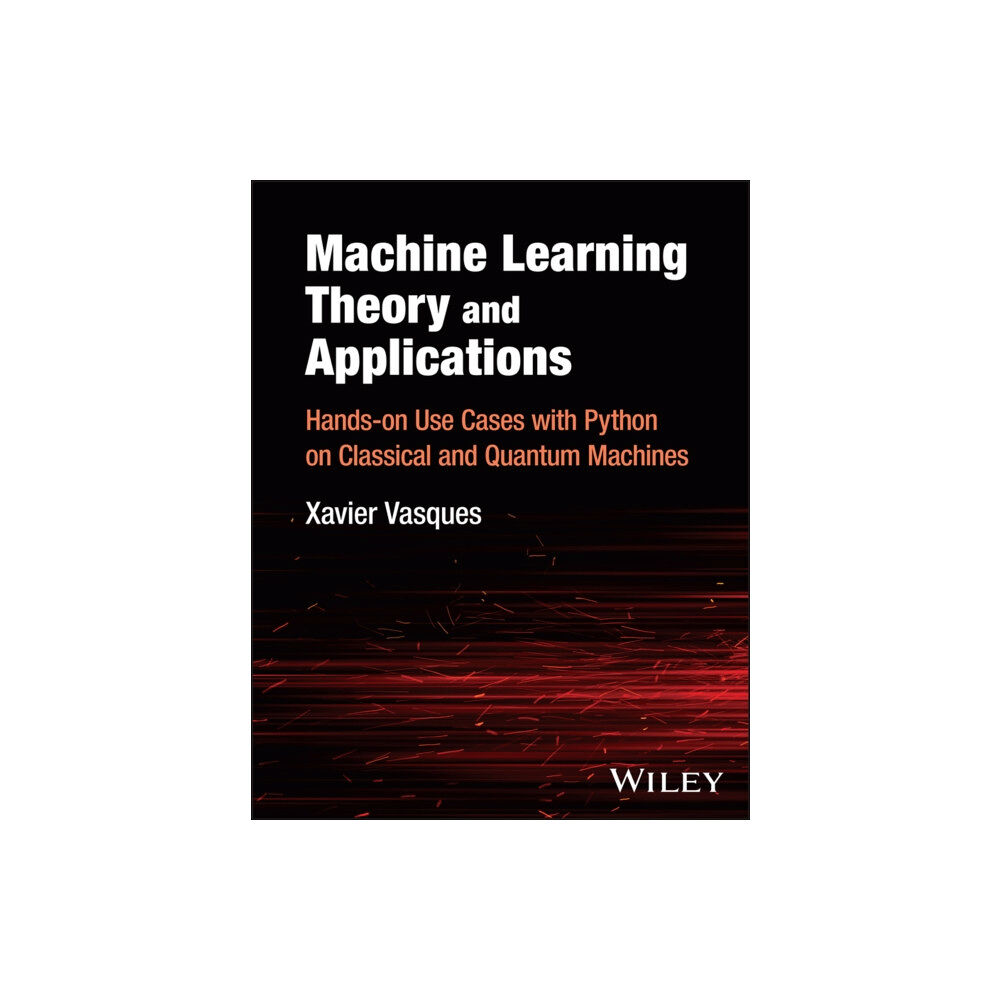- Hem
- Böcker
- Kurslitteratur
- Teknik, Industri & IT
- Machine Learning Theory and Applications (inbunden, eng)

Machine Learning Theory and Applications (inbunden, eng)
Machine Learning Theory and Applications Enables readers to understand mathematical concepts behind data engineering and machine learning al...
1 045 kr
Slut i lager
- Fri frakt
Fri frakt över 299:-
Snabb leverans
Alltid låga priser
Produktbeskrivning
Machine Learning Theory and Applications Enables readers to understand mathematical concepts behind data engineering and machine learning algorithms and apply them using open-source Python libraries Machine Learning Theory and Applications delves into the realm of machine learning and deep learning, exploring their practical applications by comprehending mathematical concepts and implementing them in real-world scenarios using Python and renowned open-source libraries.
This comprehensive guide covers a wide range of topics, including data preparation, feature engineering techniques, commonly utilized machine learning algorithms like support vector machines and neural networks, as well as generative AI and foundation models. To facilitate the creation of machine learning pipelines, a dedicated open-source framework named hephAIstos has been developed exclusively for this book.
Moreover, the text explores the fascinating domain of quantum machine learning and offers insights on executing machine learning applications across diverse hardware technologies such as CPUs, GPUs, and QPUs. Finally, the book explains how to deploy trained models through containerized applications using Kubernetes and OpenShift, as well as their integration through machine learning operations (MLOps).
Additional topics covered in Machine Learning Theory and Applications include: Current use cases of AI, including making predictions, recognizing images and speech, performing medical diagnoses, creating intelligent supply chains, natural language processing, and much moreClassical and quantum machine learning algorithms such as quantum-enhanced Support Vector Machines (QSVMs), QSVM multiclass classification, quantum neural networks, and quantum generative adversarial networks (qGANs)Different ways to manipulate data, such as handling missing data, analyzing categorical data, or processing time-related dataFeature rescaling, extraction, and selection, and how to put your trained models to life and production through containerized applicationsMachine Learning Theory and Applications is an essential resource for data scientists, engineers, and IT specialists and architects, as well as students in computer science, mathematics, and bioinformatics.
The reader is expected to understand basic Python programming and libraries such as NumPy or Pandas and basic mathematical concepts, especially linear algebra.
This comprehensive guide covers a wide range of topics, including data preparation, feature engineering techniques, commonly utilized machine learning algorithms like support vector machines and neural networks, as well as generative AI and foundation models. To facilitate the creation of machine learning pipelines, a dedicated open-source framework named hephAIstos has been developed exclusively for this book.
Moreover, the text explores the fascinating domain of quantum machine learning and offers insights on executing machine learning applications across diverse hardware technologies such as CPUs, GPUs, and QPUs. Finally, the book explains how to deploy trained models through containerized applications using Kubernetes and OpenShift, as well as their integration through machine learning operations (MLOps).
Additional topics covered in Machine Learning Theory and Applications include: Current use cases of AI, including making predictions, recognizing images and speech, performing medical diagnoses, creating intelligent supply chains, natural language processing, and much moreClassical and quantum machine learning algorithms such as quantum-enhanced Support Vector Machines (QSVMs), QSVM multiclass classification, quantum neural networks, and quantum generative adversarial networks (qGANs)Different ways to manipulate data, such as handling missing data, analyzing categorical data, or processing time-related dataFeature rescaling, extraction, and selection, and how to put your trained models to life and production through containerized applicationsMachine Learning Theory and Applications is an essential resource for data scientists, engineers, and IT specialists and architects, as well as students in computer science, mathematics, and bioinformatics.
The reader is expected to understand basic Python programming and libraries such as NumPy or Pandas and basic mathematical concepts, especially linear algebra.
| Format | Inbunden |
| Omfång | 512 sidor |
| Språk | Engelska |
| Förlag | John Wiley & Sons Inc |
| Utgivningsdatum | 2024-02-15 |
| ISBN | 9781394220618 |
Specifikation
Böcker
- Inbunden, 512, Engelska, John Wiley & Sons Inc, 2024-02-15, 9781394220618
Leverans
Vi erbjuder flera smidiga leveransalternativ beroende på ditt postnummer, såsom Budbee Box, Early Bird, Instabox och DB Schenker. Vid köp över 299 kr är leveransen kostnadsfri, annars tillkommer en fraktavgift från 29 kr. Välj det alternativ som passar dig bäst för en bekväm leverans.
Betalning
Du kan betala tryggt och enkelt via Avarda med flera alternativ: Swish för snabb betalning, kortbetalning med VISA eller MasterCard, faktura med 30 dagars betalningstid, eller konto för flexibel delbetalning.
Specifikation
Böcker
- Format Inbunden
- Antal sidor 512
- Språk Engelska
- Förlag John Wiley & Sons Inc
- Utgivningsdatum 2024-02-15
- ISBN 9781394220618
